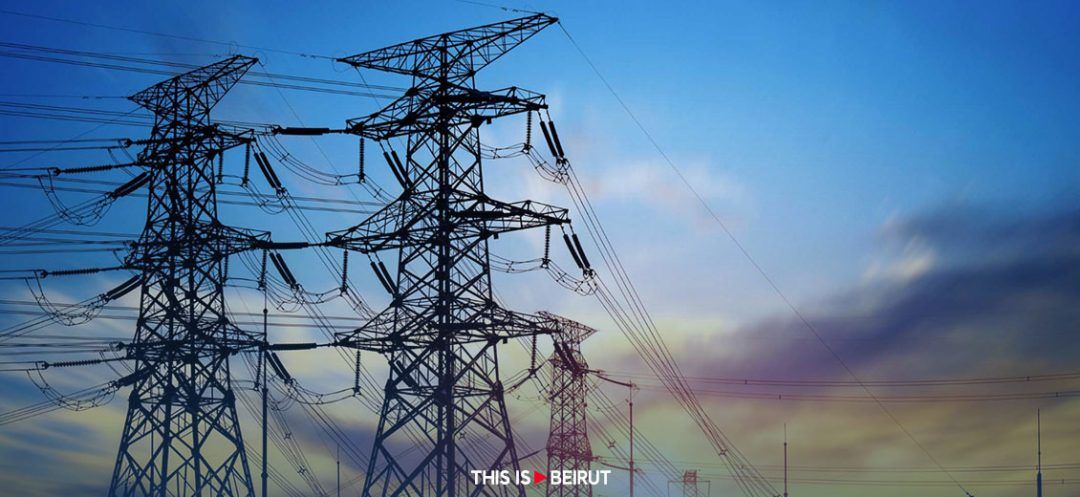
A Qatari bid for the construction of renewable energy power plants is causing acrimonious exchanges between the two ministries of Economy and Energy.
The caretaker ministers of Economy and Energy, Amine Salam and Walid Fayad, respectively, engaged in a heated exchange on Thursday, holding separate press conferences two and a half hours apart to give their sides of the story. The two sides were at each other's throats, each wanting to take credit for attracting such a project to Lebanon, all while providing contradictory information on the Qatari offer. For Salam, the construction of the power plants “won't cost Lebanon a penny.” “It's not free at all,” retorts Fayad. The caretaker Minister of Economy talks of three power plants, and his Energy colleague of just one.
The Lebanese, for their part, remain in the dark, due to a project that has been blurred by this controversy. There's “nothing definite,” Fayad told This Is Beirut, adding that he hopes “the project will come to fruition as soon as possible to provide the Lebanese with more electricity.”
The minister said that Lebanon was indebted to Qatar and TotalEnergies for supporting it with “a unique investment offer consisting of a solar-powered power plant.” “We're talking about one power plant, not 300 megawatts, and this consists of a partnership contract between the public and private sectors through a long-term commitment, not a gift as some people claim,” he said.
He added that “the proposal to set up a plant to produce electricity from solar energy is not a gift, and its cost is not ‘zero’ as rumors have it,” noting that, furthermore, “the land on which it will be installed will still have to be chosen.”
He gave these details at a press conference, during which he also responded to Salam.
Fayad wished for “no one to try to one-up the other,” stressing that he is “very interested in increasing the supply of electricity, particularly through solar energy.”
Two hours earlier, during his press conference, Salam had asserted that he “is not engaged in a duel with anyone” but that it is his duty, as caretaker Minister of the Economy, to address this issue and that he has “the right to speak first about the energy sector and any sector that affects the Lebanese and the Lebanese economy, negatively or positively.” “Unfortunately, things are in most cases negative, mainly the energy issue, which today weighs down 30 or 40% of the Lebanese economy,” said Salam.
He recalled that on October 22, 2023, he had visited Qatar with an economic delegation and talked to the Qatari leadership about the power plants project. He pointed out that the contract, signed in January, provided for the creation of three power plants. “A letter was subsequently sent by Doha to Beirut, reporting a project to build three solar power plants with a capacity of 150 megawatts each, and requiring only three land plots from the Lebanese state.”
According to him, “The offer is serious because the Qatari leaders want to help Lebanon.” “We only had to respond and give the technical details, and that's not part of my job. We must not squander the opportunity offered by Qatar,” he warned.
He added that this offer must be “placed within its investment framework that extends over a period of 25 years, during which Qatar supplies the equipment, builds the plant and operates it without Lebanon paying a single cent. That means that the cost is zero until the project is launched.”
“For the past year and a half, we've been working to make this opportunity a reality, but some people are just insisting on the law and decrees that should be approved. This means that the same parties are standing in the way of this project (...). What matters to me is that the project gets through the government so that the power plants, each with a capacity of 150 megawatts, can be built within weeks or months.”
He said that as soon as the contract was signed, Lebanon should have started looking for suitable land and responded positively to Doha, which it did not do.
In an interview he gave a few days ago to a pan-Arab channel, the Minister had been more vehement, claiming that the Lebanese government “had replied seven months later to Doha to inform it that it had appointed a ‘contact point’ for a follow-up that had not taken place.”
However, he cleared Walid Fayad, accusing the political parties and “the mafias of generator and fuel owners of blocking this project,” the former, he claimed, for reasons linked to clientelism and the latter for matters of private interest.
In particular, he came across “the generator mafia” which, according to his figures, has 7,200 generators in Lebanon, “causing terrible pollution.”
“The mafias are all concerned with disorder,” Salam argued, also stigmatizing the fact that the Lebanese pay the highest price in the world for electricity.
The caretaker ministers of Economy and Energy, Amine Salam and Walid Fayad, respectively, engaged in a heated exchange on Thursday, holding separate press conferences two and a half hours apart to give their sides of the story. The two sides were at each other's throats, each wanting to take credit for attracting such a project to Lebanon, all while providing contradictory information on the Qatari offer. For Salam, the construction of the power plants “won't cost Lebanon a penny.” “It's not free at all,” retorts Fayad. The caretaker Minister of Economy talks of three power plants, and his Energy colleague of just one.
The Lebanese, for their part, remain in the dark, due to a project that has been blurred by this controversy. There's “nothing definite,” Fayad told This Is Beirut, adding that he hopes “the project will come to fruition as soon as possible to provide the Lebanese with more electricity.”
The minister said that Lebanon was indebted to Qatar and TotalEnergies for supporting it with “a unique investment offer consisting of a solar-powered power plant.” “We're talking about one power plant, not 300 megawatts, and this consists of a partnership contract between the public and private sectors through a long-term commitment, not a gift as some people claim,” he said.
He added that “the proposal to set up a plant to produce electricity from solar energy is not a gift, and its cost is not ‘zero’ as rumors have it,” noting that, furthermore, “the land on which it will be installed will still have to be chosen.”
He gave these details at a press conference, during which he also responded to Salam.
Fayad wished for “no one to try to one-up the other,” stressing that he is “very interested in increasing the supply of electricity, particularly through solar energy.”
Two hours earlier, during his press conference, Salam had asserted that he “is not engaged in a duel with anyone” but that it is his duty, as caretaker Minister of the Economy, to address this issue and that he has “the right to speak first about the energy sector and any sector that affects the Lebanese and the Lebanese economy, negatively or positively.” “Unfortunately, things are in most cases negative, mainly the energy issue, which today weighs down 30 or 40% of the Lebanese economy,” said Salam.
He recalled that on October 22, 2023, he had visited Qatar with an economic delegation and talked to the Qatari leadership about the power plants project. He pointed out that the contract, signed in January, provided for the creation of three power plants. “A letter was subsequently sent by Doha to Beirut, reporting a project to build three solar power plants with a capacity of 150 megawatts each, and requiring only three land plots from the Lebanese state.”
According to him, “The offer is serious because the Qatari leaders want to help Lebanon.” “We only had to respond and give the technical details, and that's not part of my job. We must not squander the opportunity offered by Qatar,” he warned.
He added that this offer must be “placed within its investment framework that extends over a period of 25 years, during which Qatar supplies the equipment, builds the plant and operates it without Lebanon paying a single cent. That means that the cost is zero until the project is launched.”
“For the past year and a half, we've been working to make this opportunity a reality, but some people are just insisting on the law and decrees that should be approved. This means that the same parties are standing in the way of this project (...). What matters to me is that the project gets through the government so that the power plants, each with a capacity of 150 megawatts, can be built within weeks or months.”
He said that as soon as the contract was signed, Lebanon should have started looking for suitable land and responded positively to Doha, which it did not do.
In an interview he gave a few days ago to a pan-Arab channel, the Minister had been more vehement, claiming that the Lebanese government “had replied seven months later to Doha to inform it that it had appointed a ‘contact point’ for a follow-up that had not taken place.”
However, he cleared Walid Fayad, accusing the political parties and “the mafias of generator and fuel owners of blocking this project,” the former, he claimed, for reasons linked to clientelism and the latter for matters of private interest.
In particular, he came across “the generator mafia” which, according to his figures, has 7,200 generators in Lebanon, “causing terrible pollution.”
“The mafias are all concerned with disorder,” Salam argued, also stigmatizing the fact that the Lebanese pay the highest price in the world for electricity.
Read more



Comments